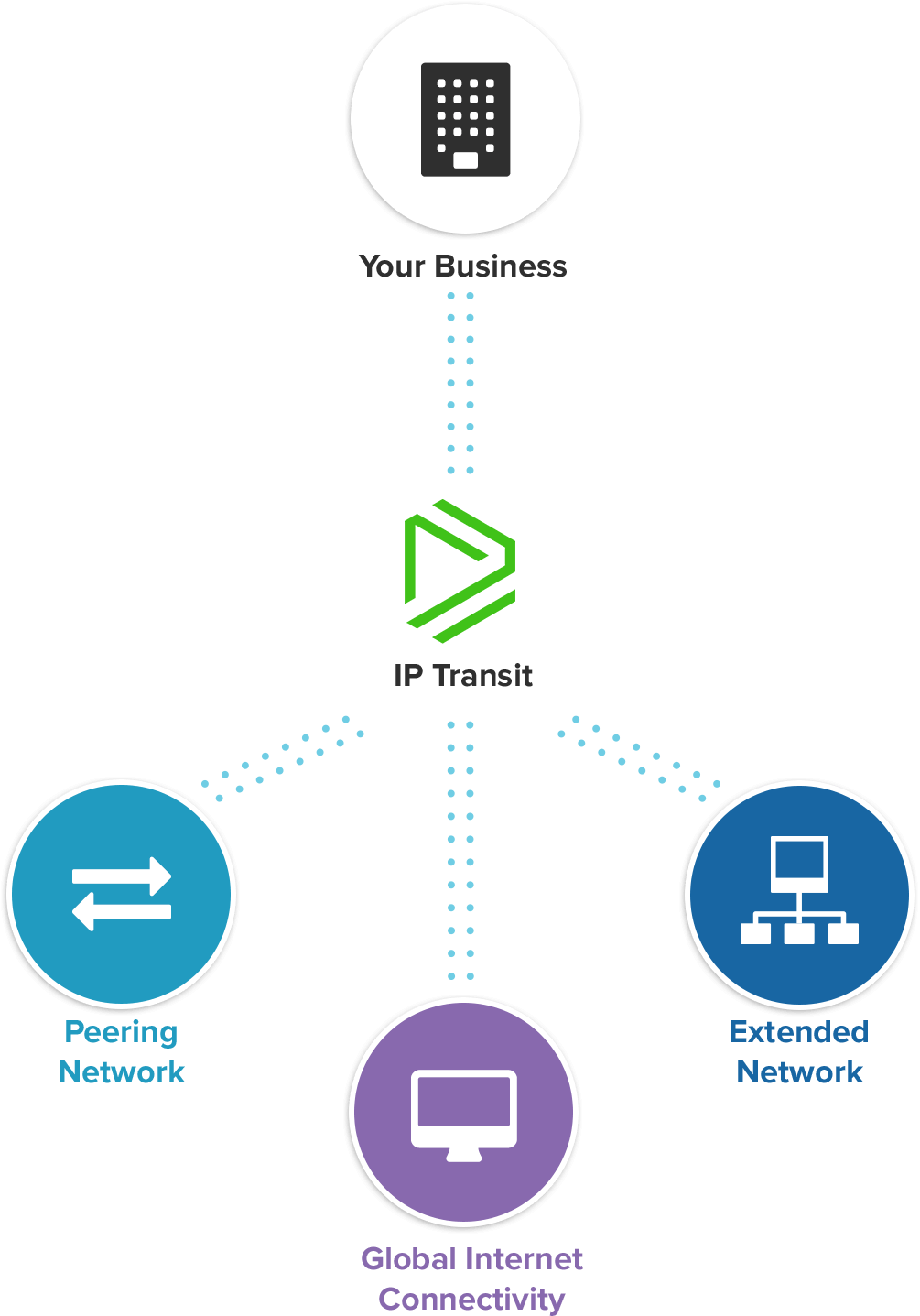What is IP Transit?
An IP Transit service provides a customer's autonomous system with a complete set of Internet routes. IP Transit is provided by an ISP (Adaptive Data Networks) and allows unrestricted access to all resources on the global IP network (the Internet). Be sure to evaluate these three critical indicators of network quality when choosing an IP Transit provider:
Peering Network
Direct or settlement-free peering is a relationship in which the routes of one autonomous system are sent to another in a direct relationship. The IPs accessible over this routing session no longer require third-party ISPs for access. This allows for a shorter and less latent path and increased throughput. Over 75% of our peak daily traffic goes over our peering network.
Expanded Network
These are the direct customers of the IP Transit provider. In this situation. Customer A and Customer B are both subscribed to Adaptive Data Networks IP Transit Service. Customer A requests resources from Customer B's network and is routed directly over the Adaptive Data Networks IP backbone instead of the public Internet. This creates a single pane of glass for issue resolution and provides improved visibility for the content delivery pathway.
Global Internet Connectivity
Connectivity to the rest of the Internet is the final critical area to consider. This is facilitated by edge routers that take full Internet routes from Tier 1 ISPs and transit providers. This grants customers full access to the rest of the Internet that is not available through the Peering and Expanded Networks. Adaptive Data Networks peers with at least three Tier 1 ISPs at each of our locations, providing for path diversity and BGP route engineering. This allows us to identify and utilize the highest quality, least latent, and best-performing routes.
Still confused? Read our "What is IP Transit" article.













